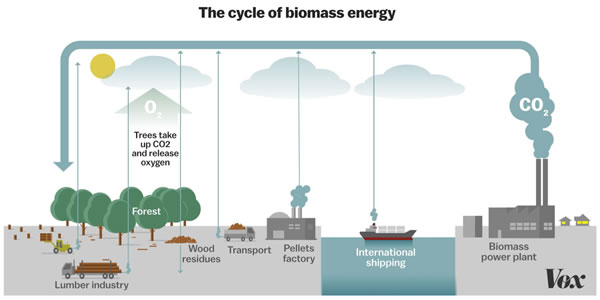Bioenergy is a very versatile and flexible solution to the EU's 2050 climate neutrality target by creating jobs and driving economic growth. Each additional 1 million tons of oil equivalent in biomass energy can have an impact of 261 million euros (1.866 billion yuan) on GDP, create an average of more than 5,100 full-time jobs, and prevent 2.4 million tons of carbon dioxide emissions.
Currently, millions of European citizens rely on bioenergy to heat their homes. Bioenergy supplies not only individuals but also collectives. In addition, many industrial sectors, especially in wood-related industries such as paper and pulp, rely on bio-residues to provide energy for their industries.
In the future, this will lead to an increase in the number of citizens and businesses using bioenergy due to the need to further develop this renewable energy source to meet the EU's 2030 and 2050 emissions targets. The first driver of sustainable development of bioenergy is cost-effectiveness. Bioenergy already accounts for 13.3% of the (EU-27) energy mix. But for innovation in the industry itself, there are three considerations: flexibility, decentralization and net emissions shift.”

Other benefits of bioenergy include bioenergy helping to decarbonize fossil-intensive industries whose carbon emissions are difficult to reduce, such as industry and transportation. In 2019, replacing 132 million tons of petroleum equivalent (Mtoe) of fossil fuels with biomass as energy, reduced 290 million tons of carbon dioxide equivalent (MtCO2eq) emissions, while reducing energy use in non-EU countries by increasing the use of domestic renewable energy supply dependence.
This reduction is equivalent to around 8% of the EU-27 greenhouse gas (GHG) emissions. At the same time, the EU's bioenergy is mainly produced by using the EU's own biological resources, and its dependence on imports from outside the EU remains at a low level of 3.7%. Replacing imported fossil fuels with domestic renewable energy increases the overall security of supply and reduces the socio-political risks of over-reliance on such fossil imports.
Additionally, biomass energy costs have proven to be more stable over time and less expensive than fossil fuels. In addition, rising prices for fossil natural gas, the vast majority of which is imported, has led to higher electricity prices, as natural gas is increasingly used to balance intermittent renewables. Combined with unpredictable prices, this puts citizens and businesses at risk of fluctuating energy costs, which could exacerbate energy poverty and reduce the competitiveness of European industry. In an impact assessment accompanying the 'Strengthening Europe's 2030 Climate Ambition' document, the European Commission analysed actionable options in relation to 2030 policy to allow for a gradual transition to achieve this.
The impact assessment considered a range of possible scenarios for 2030 and 2050, with a focus on carbon pricing and regulatory measures. The European Commission's assessment report states that the average total consumption of inland biomass energy in 2050 will be close to 220Mtoe, and the report shows that between 2019 and 2050, bioenergy consumption will increase by about 2% per year. The increased consumption of biomass energy can serve as a tool for job creation and provide economic opportunities for the entire EU countries. According to the assessment, each increase in Mtoe (million tons of oil equivalent) of biomass energy will have an impact of 261 million euros (1.86 billion yuan) on GDP and create an average of 5,181 FTE jobs. Furthermore, replacing fossil fuels with biomass could prevent an average of 487MtCO2eq of emissions during the year. Therefore, each additional Mtoe of biomass energy can not only reduce 2.4MtCO2eq emissions from replacing fossil fuels, but also boost economic growth and employment.